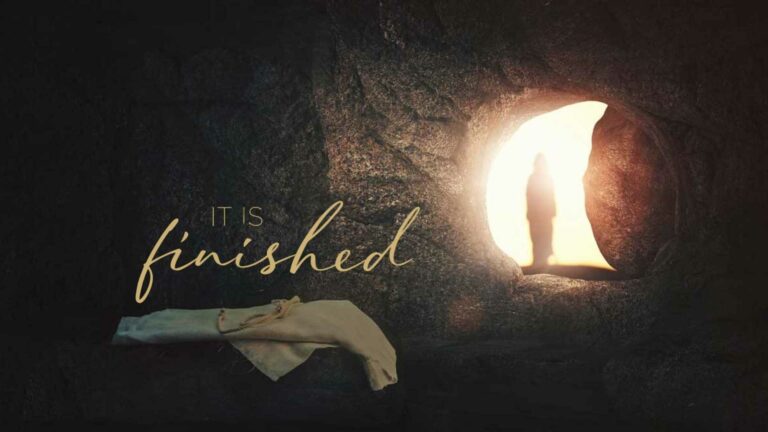
Join us at The Cove this Summer!
Join us for a week of teaching, time with God, fellowship, nature, and more at The Cove: A Billy Graham Training Center. July 21-25, 2025!
Read MoreBy Timothy Keller
One of the more striking things about the gospel of Mark (and the other gospels) is how much attention Jesus gives to the human heart. The core of the story of Jesus’ healing of the paralytic is how “He knew in his spirit…. what they were thinking in their hearts” (Mark 2:8).
He not only discerned the heart thoughts and motives of his critics, but also those of the paralyzed man, to whose unarticulated longings for forgiveness Jesus responds. In Mark 3:5 Jesus is deeply distressed at “stubborn hearts” and in Mark 7:6 he condemns people who praise God in worship and yet “their hearts are far from me.” Indeed, Jesus startles his listeners when he says that what condemns us is what comes “out of the heart” (Mark 7:19, 21). Compliance with the law and religious observance mean nothing if the heart’s motives and purposes are not set on God rather than on human approval or on self-congratulation. We can only please God and be free if he is the object of our heart’s greatest love (Mark 12:30, 33).
For the Greeks and Romans, the great human struggle was between the mind (which they believed was resident in the soul) and the passions (which they believed were resident in the body.) If you wanted to achieve strength, courage, self-control, and wisdom, you learned to sublimate the emotions to the dictates of reason.
For modern people, the great struggle is almost the reverse. We believe our deepest feelings are “who we really are” and we must not repress or deny them. The great human struggle is between the emotions and a repressive society that so often stands in the way of self-expression and realization.
The Bible teaches neither of the above. It says the human struggle happens within a single entity — the human heart. The main human struggle is not between the heart and something else, but between forces that tear it in different directions. The great battle is deciding to what your heart’s greatest love, hope, and trust will be directed.
The “heart” to English speakers means the emotions. But the Bible also says our thinking comes from the heart (Geneses 6:5; Proverbs 23:7; Daniel 2:30) as well as our willing, our plans and decisions (Proverbs 16:1,9; Matthew 12:33-34). This confuses us until we realize the Bible’s view of human nature is revolutionary, different than what you find in other human systems of thought.
The heart is used as a metaphor for the seat of our most basic orientation, our deepest commitments — what we trust the most (Proverbs 3:5; 23:26); it is what we most love and hope in, what we most treasure, what captures our imagination (Matthew 6:21). Every heart has an inclination (Genesis 6:5), something it is directed toward. The direction of the heart, then, controls everything — our thinking, feeling, and decisions and actions. What we most love we find reasonable, desirable, and doable. Whatever we cherish in our hearts most controls the whole person. No wonder Jesus is so concerned about our hearts. No wonder God ignores outward matters and looks supremely at the heart (1 Samuel 16:7; 1 Corinthians 4:5; Jeremiah 17:10) No wonder the prophets said that the goal of salvation is not mere compliance but having the law “written on the heart” through spiritual rebirth (Jeremiah 31:33.) We always, in the end, do what the heart wants the most.
The biblical understanding of the heart is culturally revolutionary. When Saint Augustine wrote his Confessions, the ancient world had never seen anything like it.
He explored his past, his history, and the internal motivations that moved him. The reason the classical age never produced such a work was because, in its view, internal motives and feelings were inconsequential, merely things to be overcome. On the other hand, our contemporary culture has no way — as Augustine had — to sift emotions, to discover which of them are liberating because they lead us away from the misery of self-absorption, and which are enslaving.
You can’t change merely by changing your thinking, or through great acts of will, but rather by changing what you love most. Change happens not only by giving your mind new truths — though it does involve that — but also by feeding the imagination new beauties so you love Jesus supremely. We change when we change what we worship the most. How do we do that? By seeing that Jesus’ own heart was crushed and broken as he died on the Cross for us (Psalm 22:14). It is as we worship a crucified Savior that our hearts are transformed.
*****
This article appears here at www.timothykeller.com. Used with permission by the author.
Timothy Keller is the founding pastor of Redeemer Presbyterian Church in Manhattan, chairman of Redeemer City to City, and author of multiple books including his latest, Hope in Times of Fear: The Resurrection and the Meaning of Easter.

Join us for a week of teaching, time with God, fellowship, nature, and more at The Cove: A Billy Graham Training Center. July 21-25, 2025!
Read More
As we observe Holy Week and celebrate our Risen Savior, I wanted to let you know that our Walk Thru the Bible President, Phil Tuttle, will be preaching the Good Friday Service (Friday, April 18) as well as the Easter Sunrise Service at the Garden Tomb in Jerusalem this Sunday.
Read More